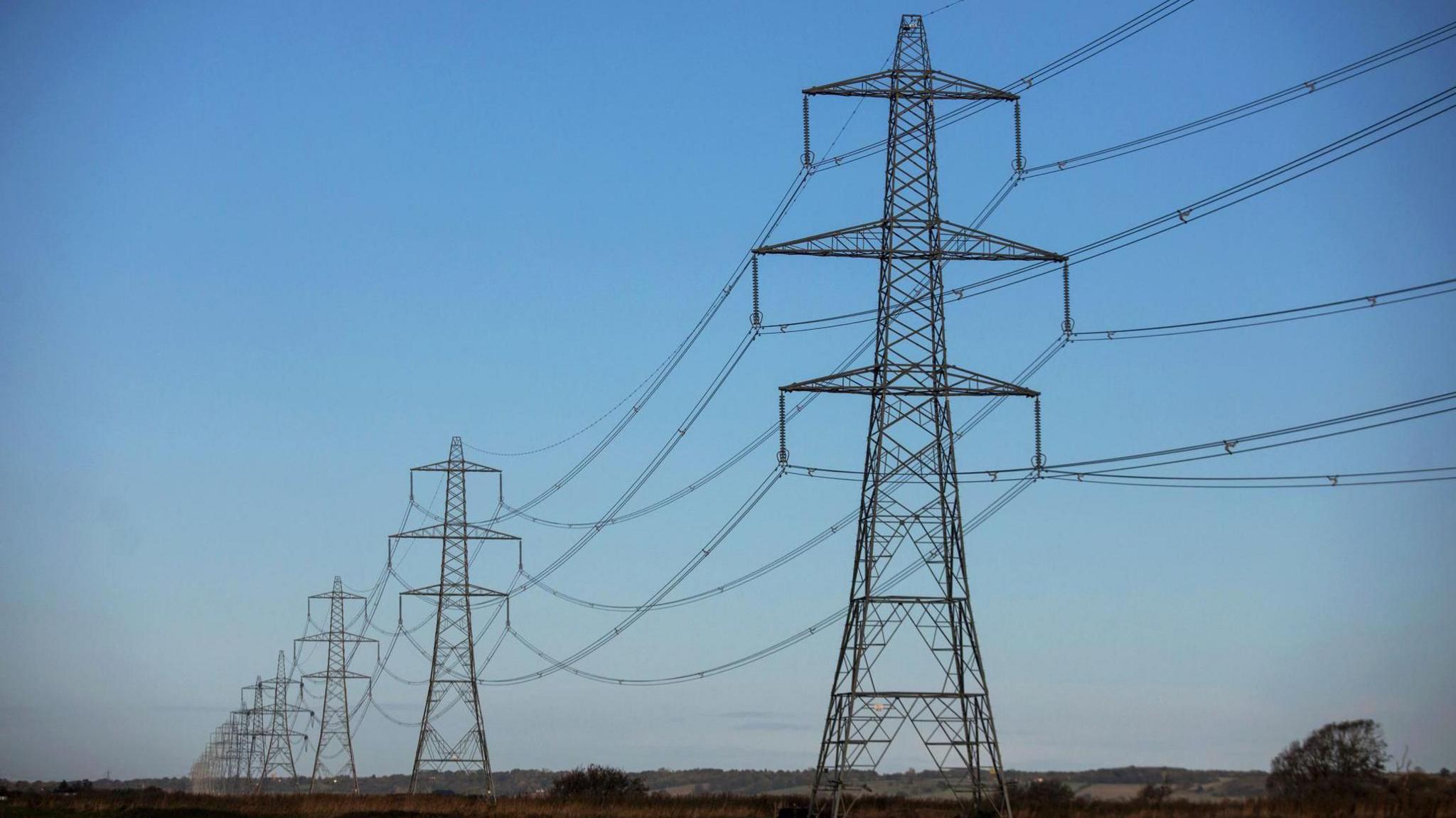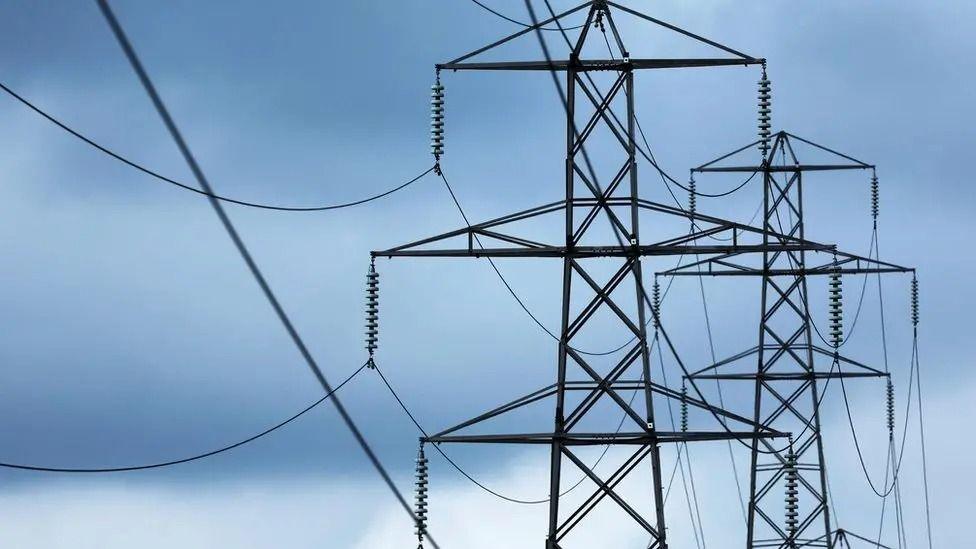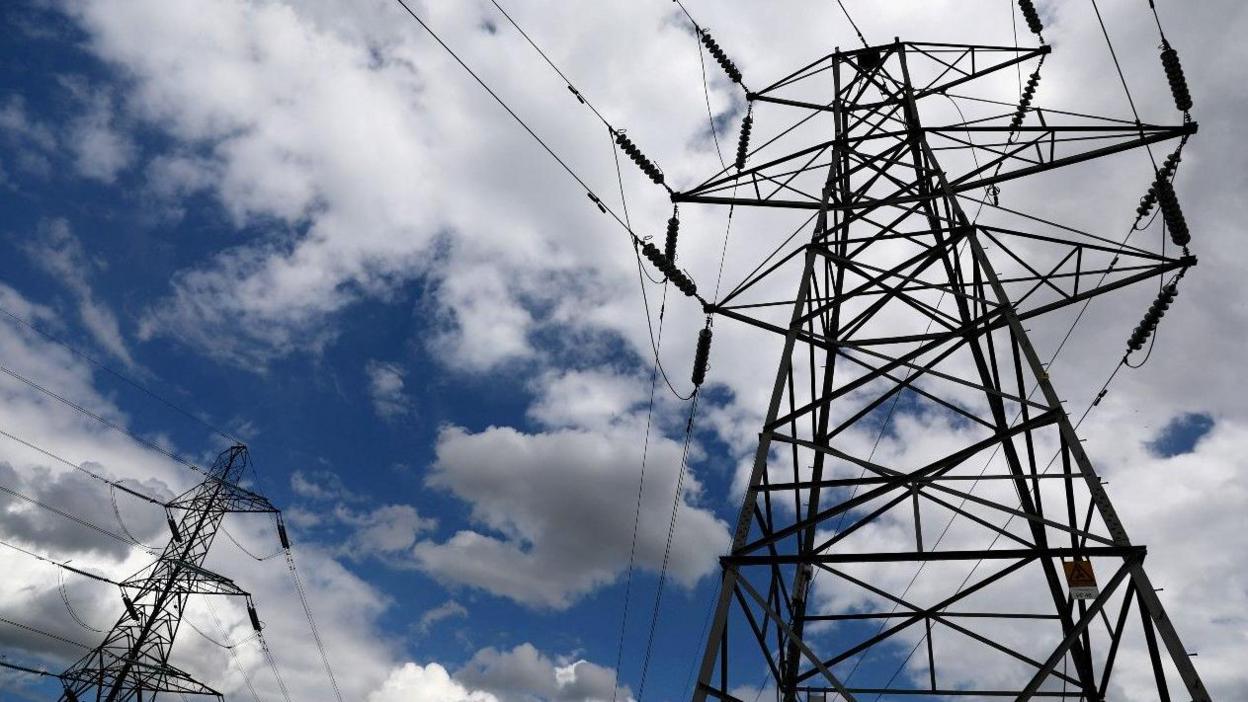Pylons would be 'carbuncles' - shadow minister

Victoria Atkins, the newly appointed shadow secretary for environment, food and rural affairs, is against plans to install pylons across Lincolnshire
- Published
A newly appointed shadow minister has said she is against pylons being erected in Lincolnshire and has urged the government to look into either offshore or underground cabling options as an alternative.
Victoria Atkins, MP for Louth and Horncastle, said she was "delighted" to be made shadow secretary for environment, food and rural affairs by new Conservative leader Kemi Badenoch.
She described the government's rollout of pylons as "carbuncles" affecting communities.
National Grid, which wants to build a corridor of pylons between Grimsby to Walpole in Norfolk, external, has calculated the cost of them to be about £1bn compared with £6.5bn to put them underground and £4.3bn for an offshore subsea cable.
Under plans announced during the previous Conservative government, the pylons would take green energy generated in Scotland and transport it to the south-east of the country through a stretch of Lincolnshire.
Prime Minister Sir Keir Starmer previously said plans for overground pylons would need to go ahead to secure cheaper electricity.
However, Lincolnshire County Council has threatened legal action to halt construction of the pylons.

National Grid wants a new line of pylons to transport electricity 87 miles (140km) between Grimsby and Walpole in Norfolk
Atkins said: "I’m against these carbuncles being plonked on our undeveloped coastlines, particularly in my constituency of Louth and Horncastle, and it has a real life impact on people in the Alford area, but along the coastline as well."
She said the government's six-year timeframe to build the pylons was "completely unrealistic".
Atkins added: "We are arguing that we should set up a second grid offshore or look at underground options to get the supply down to the south of England where it’s intended to be.
"They've done this elsewhere in the United Kingdom so my query to government is, why are they treating Lincolnshire differently? Why should we expect to be treated in a different way from let’s say the good residents of Scotland or Yorkshire?"
In April, the energy provider announced plans for two cables to travel 400 miles (644km) on the floor of the North Sea from Scotland to England, coming ashore at Anderby Creek.
The Department for Energy Security and Net Zero previously said without pylons government would "never deliver clean power for the British people".
It also said there was "additional grid capacity in the Lincolnshire area, which can be used to connect new renewable projects".
Listen to highlights from Lincolnshire on BBC Sounds, watch the latest episode of Look North or tell us about a story you think we should be covering here, external.
Related topics
- Published28 October 2024

- Published2 October 2024

- Published9 October 2024
